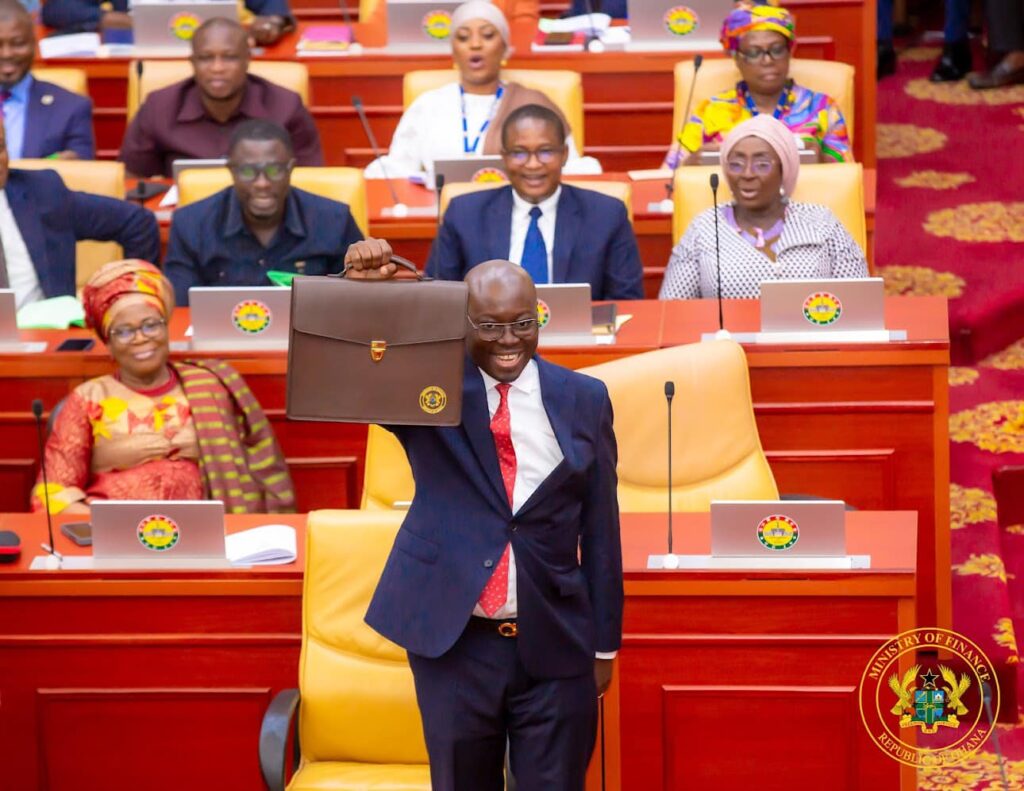President John Dramani Mahama and the National Democratic Congress administration are on the path of realizing its promise of running the leanest and efficient government in the history of Ghana’s 4th republic.
In a noteworthy restructuring of Ghana’s 2025 budgetary framework, the government has reallocated the National Security budget from the Office of Government Machinery (OGM) to the Ministry of the Interior.
The move analysts say is both a correction of longstanding misrepresentations and a nod to recent shifts in ministerial oversight.
According to Alfred Appiah, a seasoned Data and Policy Analyst, the decision to transfer the National Security budget to the Interior Ministry follows discussions that emerged after the presentation of the 2025 Budget Statement.
“This also aligns with the President’s designation of the Minister for the Interior to oversee National Security.
Alfred Appiah, Data and Policy Analyst
The realignment has had a significant impact on the 2025 budget allocation for the Office of Government Machinery.

According to Alfred Appiah, compared to 2024, the OGM’s total allocation, including Internally Generated Funds (IGF), is GH¢950 million lower.
This drastic reduction is attributed in large part to the exclusion of the National Security budget, now reclassified under Interior.
Beyond the reallocation, the renowned analyst posited that the new government appears to be making a concerted effort to reduce discretionary spending within the OGM.
He pointed out that a closer look at the budget breakdown reveals that the most substantial cuts have occurred in the category of goods and services funded by the Government of Ghana (GoG).
‘The most significant cut is in goods and services: GoG-funded allocation for this category has dropped from GH¢924 million in 2024 to GH¢298 million in 2025. Capital expenditure has also declined—from GH¢612 million to GH¢170 million”.
Alfred Appiah, Data and Plicy Analyst
Ghana’s Beltening Measures
These drastic cutbacks point to what analysts view as a necessary belt-tightening measure amid Ghana’s ongoing fiscal consolidation efforts, particularly under the International Monetary Fund (IMF)-supported Post-COVID-19 Programme for Economic Growth (PC-PEG).
Alfred Appiah emphasized that while compensation for public sector workers under the OGM has remained broadly stable compared to 2024, the figures still reflect the government’s promised 10% increase in public sector salaries.

However, Appiah noted that a more nuanced look at the data shows that, after accounting for the inclusion of the former Ministry of Information—now restructured as Government Communications—the overall compensation costs under the OGM are actually lower in 2025 than in 2024.
This seemingly paradoxical outcome is a testament to the government’s commitment to rationalizing expenditure, especially within administrative structures that have historically been seen as bloated or inefficient.
The restructuring of the Ministry of Information into Government Communications also indicates a shift toward streamlining government messaging and reducing bureaucratic overlap.
The Office of Government Machinery has often been a lightning rod for criticism due to its perceived lack of transparency and bloated spending, especially in the allocation of funds that fall under the category of goods and services.
With these deep cuts, the government appears to be responding to long-standing calls from civil society and fiscal policy experts to rein in what many see as excessive discretionary spending in the executive branch.
“The government deserves credit for making such substantial cuts to discretionary spending at the Office of Government Machinery.”
Alfred Appiah, Data and Policy Analyst
Although the fiscal gains from these reductions may seem modest in the grand scheme of the national budget, they send a strong signal about the government’s willingness to lead by example in its efforts to restore macroeconomic stability.

With the country still navigating the challenges of debt restructuring and public sector reform, this move could bolster Ghana’s case for continued IMF support and improve public confidence in the government’s fiscal discipline.
In sum, the transfer of the National Security budget to the Ministry of the Interior, coupled with significant cuts in discretionary expenditure at the OGM, marks a pivotal step in the Mahama administration’s approach to realigning budget priorities.
While implementation and transparency will ultimately determine the success of these reforms, the current fiscal policy direction suggests a move toward more coherent and accountable governance.


















